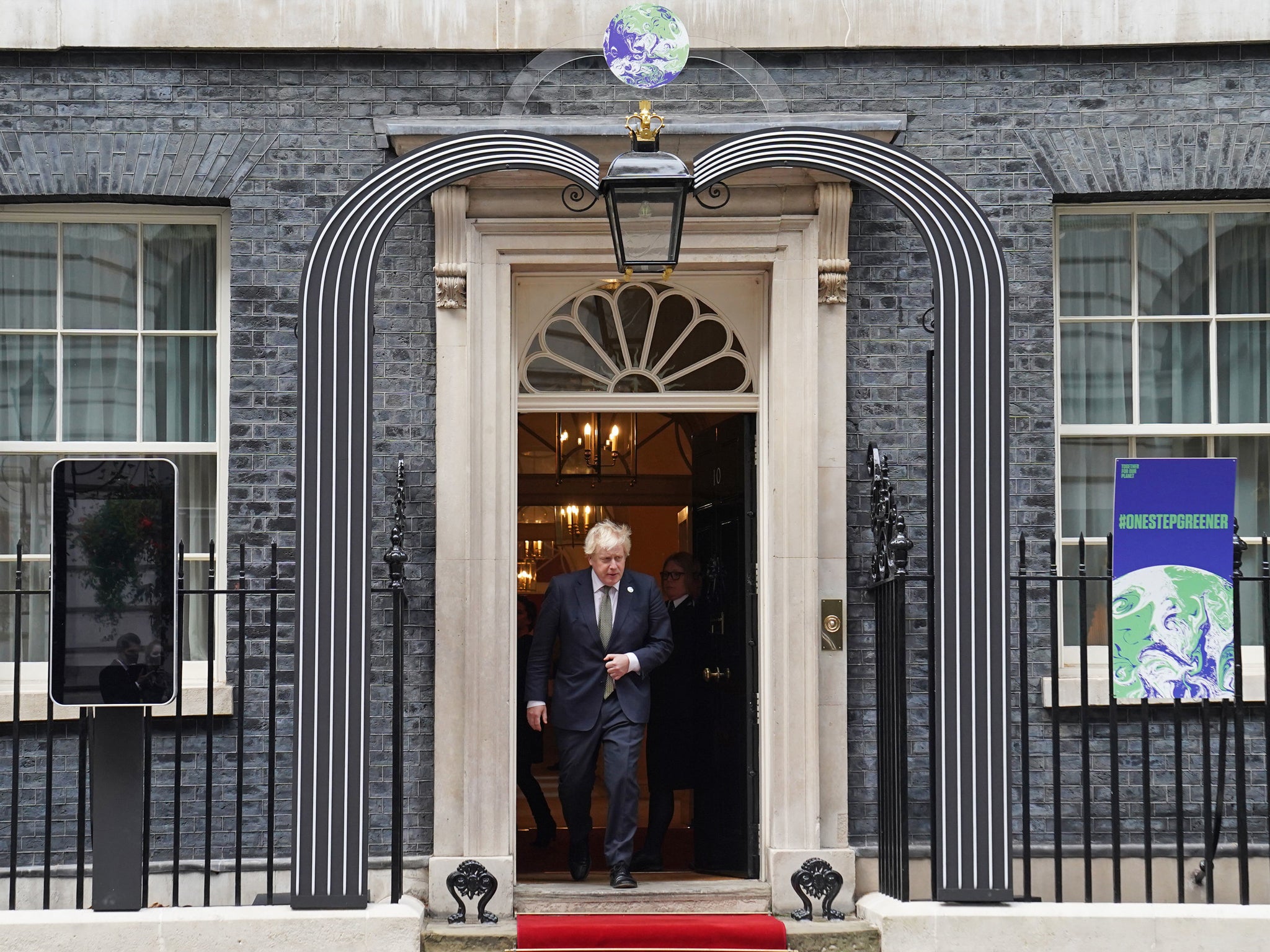Boris Johnson is counting on the Cop26 summit feeling the ‘G20 bounce’
The prime minister will be glad-handing the G20 leaders in Rome in the hope the goodwill will extend to the Glasgow get-together, writes Sean O’Grady


It’s unusual for two major international summits to run into each other, but, after almost two years of virtual meetings, world leaders are indeed getting together in two places to try and co-ordinate efforts to deal with the climate emergency. Although the G20 summit in Rome this weekend will have other items on its agenda, such as rebuilding the world economy as it emerges from the Covid pandemic, Boris Johnson in particular will be hoping that it will create a “G20 bounce” for the Cop26 climate summit in Glasgow, which is already getting underway.
It is therefore a useful coincidence, if only because the G20 is such a broad and potentially effective “club”. It held its first session in Washington in 2008, which proved hugely important in galvanising a rescue of 10 banks; and it has also proved to be a forum during the Covid pandemic. Now it is being used to manage a third global challenge – the climate crisis.
So, to deal with these planetary problems, the usual G7 of America, Japan, Germany, France, Britain, Italy and Canada has been supplemented by representatives of China, Russia, Brazil, South African, Saudi Arabia, Indonesia, South Korea, Argentina, Turkey, India, Australia and Mexico, plus the European Union. Together they represent 75 per cent of the world economy, a similar proportion of greenhouse gas emissions, and 60 per cent of its population. At this year’s summit in Rome, as is customary, some other national heads of state and government have also been invited, from Rwanda, Singapore, Spain, the Netherlands, the Democratic Republic of Congo, Brunei and Singapore.
So the G20 meeting is timely, but also represents an obvious opportunity for Johnson to lobby major polluters such as China and the US, major hydrocarbon producers such as Australia, Russia and Saudi Arabia, and the custodians of priceless rainforests, in Brazil, the DRC and Indonesia, to make whatever contribution they can to setting and hitting binding targets for greenhouse emissions, preferably tighter ones than in the Paris Agreement of 2015. The other, related, goal is to commit the richer nations to a total of £100bn a year to help the developing world cope with the climate emergency, in order to make the Glasgow get-together the success Johnson would wish it to be.
There will be obvious tensions and difficulties, of course. Johnson’s task is also made the more delicate by the various diplomatic disputes Britain has with China, Russia, France and the EU, whereas President Biden, while in sympathy with UK’s attempts to ease the climate emergency, is wary of immediate British policy in Ireland and Brexit generally. Onlookers may also wonder why the UK chose this moment to cut the tax on air travel and relax (until a U-turn) the rules on tipping effluent into rivers and the sea.
Brazil and Australia have been slow in the past to accept their part in the climate emergency, while even countries that give vocal support to the Paris Agreement, such as Japan and Saudi Arabia, have been lobbying to weaken the more onerous obligations.
In typical fashion, Johnson has sloganeered his aims as “coal, cars, cash and trees” — drastically cutting reliance on fossil fuels, switching to clean-electric battery vehicles, funding major initiatives and stopping deforestation. Johnson won’t get any face time with President Xi and President Putin, who aren’t attending Rome or Glasgow, but Angela Merkel, in her swan song, will be there, and will also bring along her probable successor, Olaf Scholz, to meet his prospective new international peers.
According to the prime minister, the chances of success for Cop26 are “touch and go”, and “we might not get the agreements that we need”. This may be expectation management. In reality most of the hard work in hammering out something like agreement has been done behind the scenes already. There have been some breakthrough successes, from Australia and Indonesia, for example, and some sort of accord will be reached by the end of the long days of negotiation. Will it be enough to save the planet, though? The precedents are not encouraging, and Britain’s post-Brexit diplomatic isolation isn’t helping.



Join our commenting forum
Join thought-provoking conversations, follow other Independent readers and see their replies
Comments